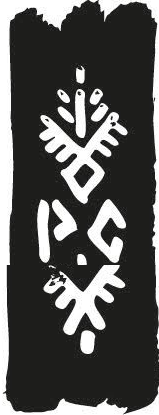3-10 players (4-6 best) - 1 pack (52)
CARDS
Use a standard 52-card pack. Suits are irrelevant: all that counts is the numerical face-value of the cards. From Two to Ten count 2 to 10 respectively, court cards count 10 each, and Ace counts either 1 or 11 at its holder’s discretion. It is convenient to refer to cards worth 10 as tenths.
PRELIMINARIES
Pontoon is a banking game and requires counters, chips, coins or other manageable objects. The banker deals and the punters play against him. Agree beforehand how the bankership is to change hands, e.g., each player deals/banks in turns passing to the left, or the bank goes to a punter who beats the banker with a pontoon, or it may be bought at any time for a mutually acceptable sum. Agree to end play at a particular time.
DEAL
Banker shuffles the cards before his first deal, but not thereafter, so the pack remains unshuffled until the next takes over. Deal one card each, face down, dealer’s last. All except the banker may look at their card.
OBJECTIVES
Everyone will get a second card, and more may be bought thereafter. The object is to finish with a better hand than the banker’s. A hand whose cards total over 21 is bust, and loses. A hand totalling 16 to 21 beats the banker only if the latter has a lower counting or bust hand. There are also three special hands:
- Pontoon is 21 on two cards, i.e., an Ace and a tenth. This beats the banker, unless he also has a pontoon, and wins double.
- Royal pontoon is three sevens (=21). The banker can not beat this even with a pontoon. Furthermore, only a punter counts a royal pontoon: three Sevens for the banker counts as an ordinary 21 and is beaten by a punter’s pontoon. It wins treble stakes.
- Five card trick. A hand of five cards that is not bust. This beats anything the banker has, except another five card trick, and wins double stakes.
SECOND CARD
Each punter looks at his first card and stakes upon it an amount that lies within previously agreed limits, entitling him to receive a second card. The banker deals everybody a second card, the last going to himself, at which point he now looks at both his cards. If he has a pontoon he shows it and wins, collecting double everybody’s stakes. If not, he says “play”. If now a punter has a pontoon he indicates that fact by turning the Ace face up, and receives no more cards.
SPLITTING
If a punter has two cards of identical rank (two different tenths will not do) he may split them and play two hands if he wishes. He indicates this by separating them on the table and staking on the second card the same amount as he staked on the first. The banker then deals another card face down to each hand. Again, if either hand is a pontoon, the punter faces the Ace and, if either is a pair, he is allowed to split again, and so on. The banker may not split his own cards.
ADDITIONAL CARDS
The banker now addresses himself to each punter in turn, not proceeding to the next until he has finished transactions with the first. If the punter is satisfied with his cards and requires no more, he says “stick”; if not, he may acquire more cards until he either does stick, or is bust. In order to stick, at any time, his cards must total at least 16. He may acquire further cards by buying them face down or twisting them face up. He may start buying, and then switch to twisting, but once he has twisted he may not subsequently buy. If he says “buy” he pays not less than the amount for which he bought his previous card, nor more than his total stakes so far, and receives the card face down. If he says “twist” he pays nothing but receives the card face up. If he busts he must announce that fact. If he is trying for a five card trick, the fifth card is dealt face up even if he buys it. If he gets a royal pontoon he must reveal his cards immediately.
BANKER’S PLAY
The banker does not yet collect the stakes of anyone who has bust but must play first. He turns his cards face up, and deals himself further cards face up until he is satisfied with his total. If he busts he collects the stakes of punters who went bust and pays the others the amount they staked (double for a pontoon or five card trick, treble for a royal pontoon). If he reaches exactly 21 on three or four cards, he pays only those with pontoons or five card tricks. If he gets a five card trick, he beats a punter’s five card trick but not a pontoon, and receives double stakes. With anything under 21 he pays those with a higher count or better hand and collects from those with equal, lower or bust hands. Cards are then gathered up and returned to the bottom of the pack.
